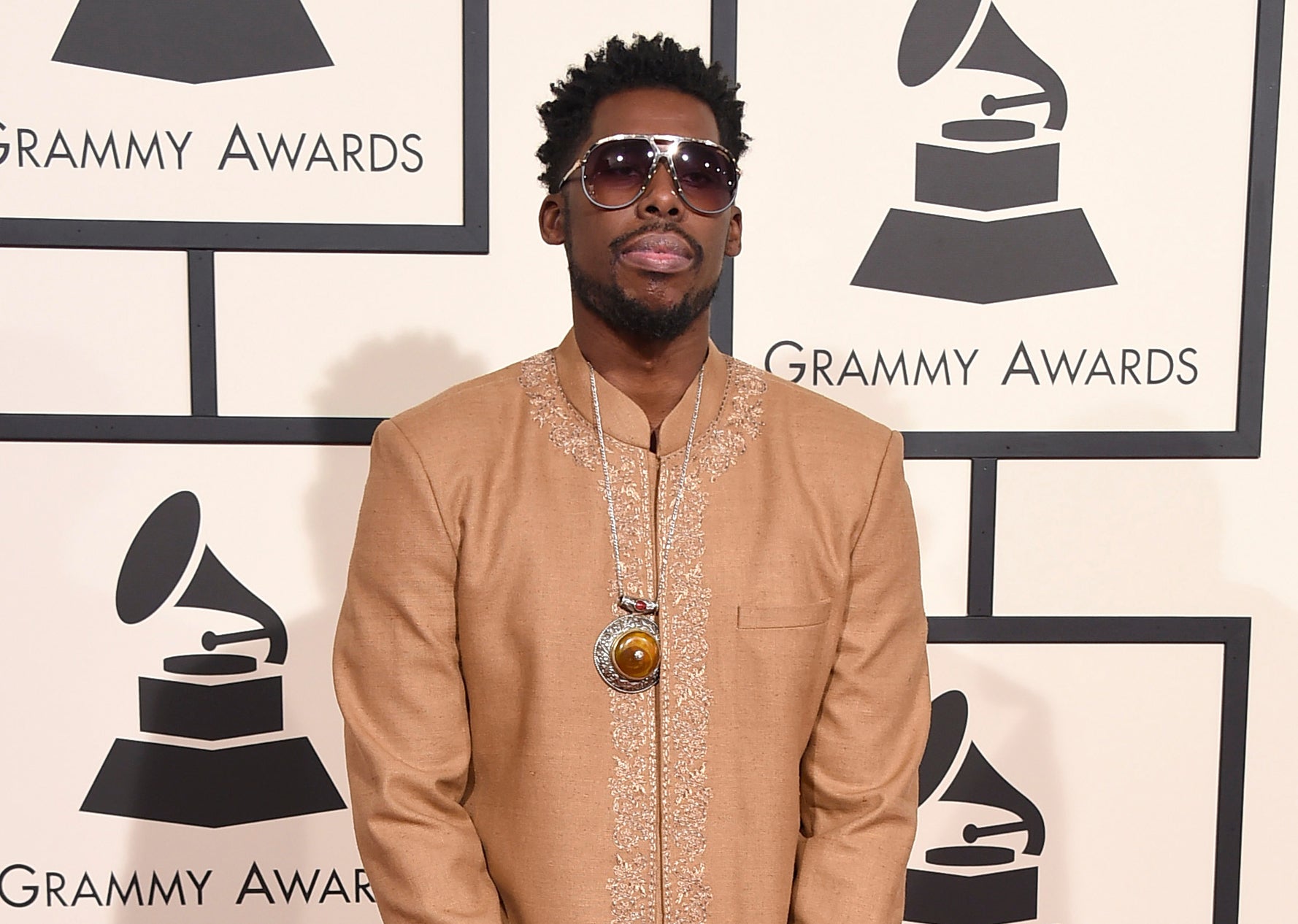Afrofuturism showcased at Carnegie Hall in 2-month festival
Afrofuturism will be highlighted at Carnegie Hall, placing a spotlight on the movement as the bastion of New York City music and culture takes another step toward normalcy

Your support helps us to tell the story
From reproductive rights to climate change to Big Tech, The Independent is on the ground when the story is developing. Whether it's investigating the financials of Elon Musk's pro-Trump PAC or producing our latest documentary, 'The A Word', which shines a light on the American women fighting for reproductive rights, we know how important it is to parse out the facts from the messaging.
At such a critical moment in US history, we need reporters on the ground. Your donation allows us to keep sending journalists to speak to both sides of the story.
The Independent is trusted by Americans across the entire political spectrum. And unlike many other quality news outlets, we choose not to lock Americans out of our reporting and analysis with paywalls. We believe quality journalism should be available to everyone, paid for by those who can afford it.
Your support makes all the difference.Afrofuturism is getting a spotlight at Carnegie Hall as the bastion of New York City music and culture takes another step toward normalcy.
Grammy Award winner Flying Lotus also known as FlyLo, makes his Carnegie debut Saturday night to open a two-month Afrofuturism festival, which includes more than 80 events at the hall and partnering institutions.
"It is something which is kind of hard to explain in a certain way,” said Adriaan Fuchs, Carnegie’s director of festivals and special projects. “But at the same time, it is something which one senses and knows as soon as you see it.”
Carnegie was shuttered from March 13, 2020, until last Oct. 6 because of the coronavirus pandemic and presented a digital “Voices of Hope” festival last April. This year’s festival is the first in person since “Migrations: The Making of America” in 2019.
Afrofuturism has roots in African American science fiction and encompasses literature, music and visual art exploring African American culture dating to slavery.
Other concerts include the Sun Ra Arkestra with 97-year-old saxophonist Marshall Allen and guests Kelsey Lu and Moor Mother (Feb. 17), Nicole Mitchell and Angel Bat Dawid (Feb. 24), Chimurenga Renaissance and Fatoumata Diawara (March 4), the Carl Craig Synthesizer Ensemble (March 19) and Theo Croker (March 26).
Carnegie published a timeline of African American music in conjunction with the festival.
“It is an extension of other explorations of programing involving Black artists that they’ve done in the past,” said Ytasha L. Womack, an author, filmmaker and dancer who is a member of Carnegie’s curatorial council for the festival. “But it also shows that they’re very much ahead of the curve in recognizing that Afrofuturism is a celebrated high art form.”
Plans began in 2018 when Fuchs consulted writer Alondra Nelson and Mark Dery, who first used the term Afrofuturism in his 1993 essay “Black to the Future” in the South Atlantic Quarterly.
Dery defines the word “as African American signification that appropriates images of technology and a prosthetically enhanced future in the service of African American visions of things to come and a future that includes Black folk.”
“Cultural theorists, public intellectuals and cultural workers, as we in the left used to call them, at the front lines of theorizing this emerging phenomenon, have taken issue, and rightly so, with the Americentricity of my vision,” Dery said, “for a more Afrodiasporic, pan-African understanding of Afrofuturism that bears in mind the legible impress of colonial horror, certainly all over Africa, but also elsewhere in Europe and so forth.”
Carnegie’s council for the festival also includes Afrofuturism specialists Reynaldo Anderson, King James Britt, Louis Chude-Sokei and Sheree Renée Thomas.
Womack wrote the 2013 book: “Afrofuturism: The World of Black Sci-Fi and Fantasy Culture.”
“I was thinking so much of people I had met were excited about ideas involving liberation, imagination, technology, mysticism and Black culture,” she said. “I felt obligated to write the book because I wanted people to find themselves in the book. I wanted them to realize that they weren’t alone. And I wanted them to feel that it was OK to think about Black culture and time and space, and to see that they were part of a larger trajectory of people.”
Events will take place at the Metropolitan Museum of Art, Juilliard School, Schomburg Center for Research in Black Culture, Harlem’s Studio Museum, National Sawdust and New York Film Academy. The Chicago-based Association for the Advancement of Creative Musicians provides an online component.
“You really get the opportunity to take a deep dive into something and go and attend film screenings and hear musical performances and panel discussions and all sorts of different aspects of a specific subject,” Fuchs said. “It’s a wonderful tool, as well, for organizations to reach new young audiences and in a sense be part of something which sort of cuts through I think a lot of the cultural noise in New York City because there’s so much happening.”
Carnegie launched its first international festival, “Berlin in Lights,” in November 2007, and Jessye Norman curated “Honor! A Celebration of the African American Cultural Legacy” in March 2009.
Dery is critical of the way some have interpreted Afrofuturism, which he claims “in its most superficial incarnation (has) been turned into the stuff of newspaper trend pieces whose authors are time-starved and don’t do the grunt work.”
“This is what capitalism does,” Dery said. “It takes sort of transgressive phenomena and sort of cultural insurgencies and it skins their hides and leaves the meat of the matter to rot and then turns it into pret-a-porter, off-the-rack fashion/lifestyle choices.”